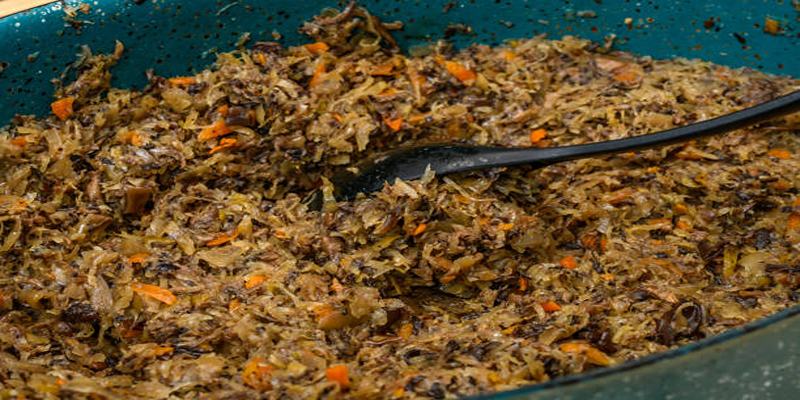Using expired vegetable oil can pose significant health risks and lead to undesirable culinary results. As vegetable oil ages past its expiration date, it undergoes oxidation and breaks down, which can produce harmful compounds such as free radicals and aldehydes. Consuming these compounds can contribute to inflammation and increase the risk of chronic diseases, including cancer and heart disease. Additionally, expired vegetable oil may develop off-flavors and rancid odors, negatively affecting the taste and quality of your dishes. To ensure your meals remain both safe and delicious, it is crucial to regularly check the expiration dates of your oils and store them properly in a cool, dark place. Being mindful of these factors can help you avoid the dangers and consequences associated with using expired vegetable oil.
Chemical Changes and Rancidity:
One of the main risks associated with expired vegetable oil is rancidity. Over time, exposure to heat, light, and air triggers oils to undergo chemical transformations. This process, known as oxidation, results in the formation of free radicals and degradation products that alter the oil's taste, smell, and nutritional value. Rancid oils often emit a foul odor and possess a bitter taste, rendering them unsuitable for cooking. Consuming rancid oil can also introduce harmful compounds into the body, potentially causing digestive discomfort and long-term health issues.
Rancidity: Causes and Indicators:
Rancidity occurs when the oils break down and oxidize, leading to the development of off flavors and odors. This section delves into the causes of rancidity and the signs to look for to determine if your oil has gone rancid.
Nutritional Degradation:
Fresh vegetable oils are rich in essential nutrients such as vitamins E and K, as well as beneficial fatty acids like omega-3 and omega-6. However, as oils age and approach expiration, these nutrients degrade. Factors like light and heat accelerate this process, diminishing the oil's nutritional value. Using expired vegetable oil in cooking can therefore deprive individuals of crucial dietary components, impacting overall health and wellness.
Loss of Essential Nutrients:
Over time, vegetable oil can lose its essential nutrients such as vitamin E, omega-3 fatty acids, and antioxidants. This nutrient degradation diminishes the health benefits of the oil, making it less beneficial for cooking and consumption.
Increased Free Radicals:
Expired vegetable oil is more likely to contain an increased number of free radicals due to the breakdown of polyunsaturated fats. Consuming such oils can contribute to oxidative stress in the body, which is associated with various chronic diseases.
Reduced Healthy Fats:
The beneficial unsaturated fats present in fresh vegetable oil, which are essential for heart health, can deteriorate over time. This diminishment results in a loss of the healthy fat content that is important for a balanced diet.
Impact on Flavor and Aroma:
The breakdown of compounds in vegetable oil not only affects its nutritional value but also alters its flavor and aroma. Oils that have degraded may develop unpleasant smells and tastes, negatively impacting the dishes they are used in.
Increased Risk of Foodborne Illness:

Expired vegetable oil can become a breeding ground for harmful bacteria and pathogens. As oil deteriorates, its acidity increases, creating a favorable environment for microbial growth. Cooking with expired oil may introduce these contaminants into food, posing a risk of foodborne illnesses such as salmonella and E. coli infections. Symptoms can range from mild gastrointestinal discomfort to severe dehydration, sometimes requiring medical attention.
1. Microbial Growth in Expired Oil:
Expired vegetable oil fosters bacterial growth due to its acidic environment with a low pH, created by the breakdown of oils. The risk of contamination increases the longer the oil remains unused past its expiration date. To prevent this, regularly check and properly store your vegetable oils.
2. Health Risks of Consuming Contaminated Oil
- Respiratory Issues: Using rancid oil in cooking produces harmful compounds that can irritate the respiratory tract when inhaled during cooking. This can lead to coughing, wheezing, and other breathing difficulties.
- Increased Risk of Chronic Diseases: Consumption of oxidized oils has been linked to an increased risk of chronic diseases, including cardiovascular disease and cancer. The compounds present in rancid oil can contribute to inflammation in the body, leading to the development of these health issues over time.
3. Symptoms of Foodborne Illnesses:
The symptoms of foodborne illnesses can vary depending on the type of bacteria present in the expired oil. However, common symptoms may include:
- Nausea and vomiting
- Diarrhea
- Abdominal pain and cramping
- Fever
- Headaches
- Dehydration
If you experience any of these symptoms after consuming expired vegetable oil or dishes made with it, seek medical attention immediately.
4. Prevention Strategies:
The best way to avoid the dangers and consequences of using expired vegetable oil is by prevention. Here are some strategies to prevent rancidity and bacterial growth in your cooking oils:
- Check expiration dates regularly: Make it a habit to check the expiration dates on your oils before use. If an oil has exceeded its expiration date, discard it.
- Store oils properly: To slow down oxidation, store oils in a cool, dark place away from heat sources such as stoves and ovens.
- Use smaller bottles: Consider transferring your cooking oil into smaller bottles or containers that you can finish within a few weeks. This will help prevent the oil from sitting unused for extended periods.
- Keep oils away from direct sunlight: Exposure to light can accelerate the breakdown of oils, so it is best to store them in dark-colored bottles or containers and avoid placing them in direct sunlight.
- Avoid reusing old oil: Discard any leftover oil after cooking as reusing it multiple times can increase the risk of contamination and rancidity.
Impact on Culinary Quality:

Beyond health concerns, using expired vegetable oil can negatively affect the quality and taste of prepared dishes. Rancid oils impart undesirable flavors and odors to food, masking the natural taste of ingredients and detracting from the overall dining experience. Both professional chefs and home cooks recognize the importance of using fresh, high-quality oils to achieve optimal flavor profiles and culinary excellence.
Environmental Considerations:
Improper disposal of expired vegetable oil poses environmental hazards. Pouring used oil down drains or into water sources can lead to pollution and harm aquatic ecosystems. Recycling used cooking oil through designated programs or facilities ensures proper disposal and reduces environmental impact.
Best Practices for Handling Vegetable Oil
To minimize the dangers associated with expired vegetable oil, adhere to the following best practices:
- Storage: Store vegetable oil in a cool, dark place away from heat and light to prolong shelf life.
- Labeling and Rotation: Clearly label containers with purchase or expiration dates and rotate stock to use older oils first.
- Quality Checks: Regularly inspect oils for signs of rancidity, such as off odors or flavors.
- Proper Disposal: Dispose of used cooking oil responsibly by recycling or using designated collection services.
Conclusion:
Mindful consumption and proper handling of vegetable oil can help mitigate the potential dangers and consequences associated with using expired oils. By understanding the chemical changes that occur in aging oils, individuals can make informed decisions about their use in cooking and ensure optimal culinary results. Regularly checking expiration dates, storing oils properly, and practicing responsible disposal methods are key to maintaining a safe and enjoyable dining experience. So remember to always check your oil's expiration date before using it in your next dish!







